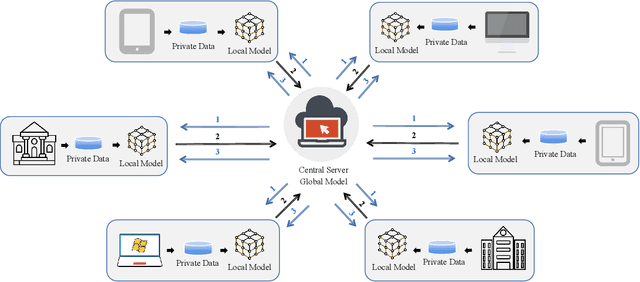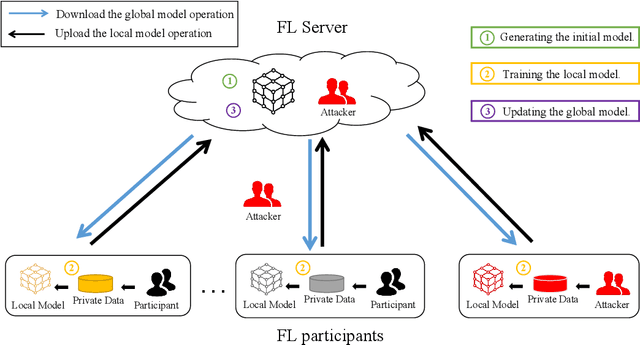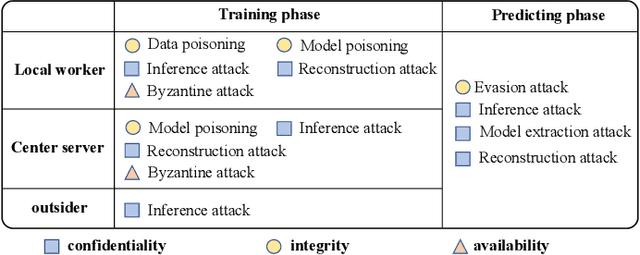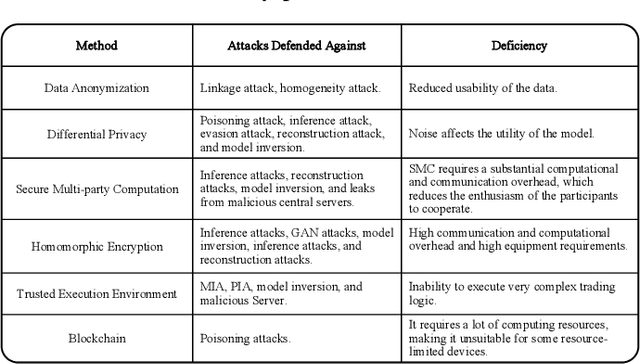Yijie Gui
Federated Learning Attacks and Defenses: A Survey
Nov 27, 2022



Abstract:In terms of artificial intelligence, there are several security and privacy deficiencies in the traditional centralized training methods of machine learning models by a server. To address this limitation, federated learning (FL) has been proposed and is known for breaking down ``data silos" and protecting the privacy of users. However, FL has not yet gained popularity in the industry, mainly due to its security, privacy, and high cost of communication. For the purpose of advancing the research in this field, building a robust FL system, and realizing the wide application of FL, this paper sorts out the possible attacks and corresponding defenses of the current FL system systematically. Firstly, this paper briefly introduces the basic workflow of FL and related knowledge of attacks and defenses. It reviews a great deal of research about privacy theft and malicious attacks that have been studied in recent years. Most importantly, in view of the current three classification criteria, namely the three stages of machine learning, the three different roles in federated learning, and the CIA (Confidentiality, Integrity, and Availability) guidelines on privacy protection, we divide attack approaches into two categories according to the training stage and the prediction stage in machine learning. Furthermore, we also identify the CIA property violated for each attack method and potential attack role. Various defense mechanisms are then analyzed separately from the level of privacy and security. Finally, we summarize the possible challenges in the application of FL from the aspect of attacks and defenses and discuss the future development direction of FL systems. In this way, the designed FL system has the ability to resist different attacks and is more secure and stable.
 Add to Chrome
Add to Chrome Add to Firefox
Add to Firefox Add to Edge
Add to Edge